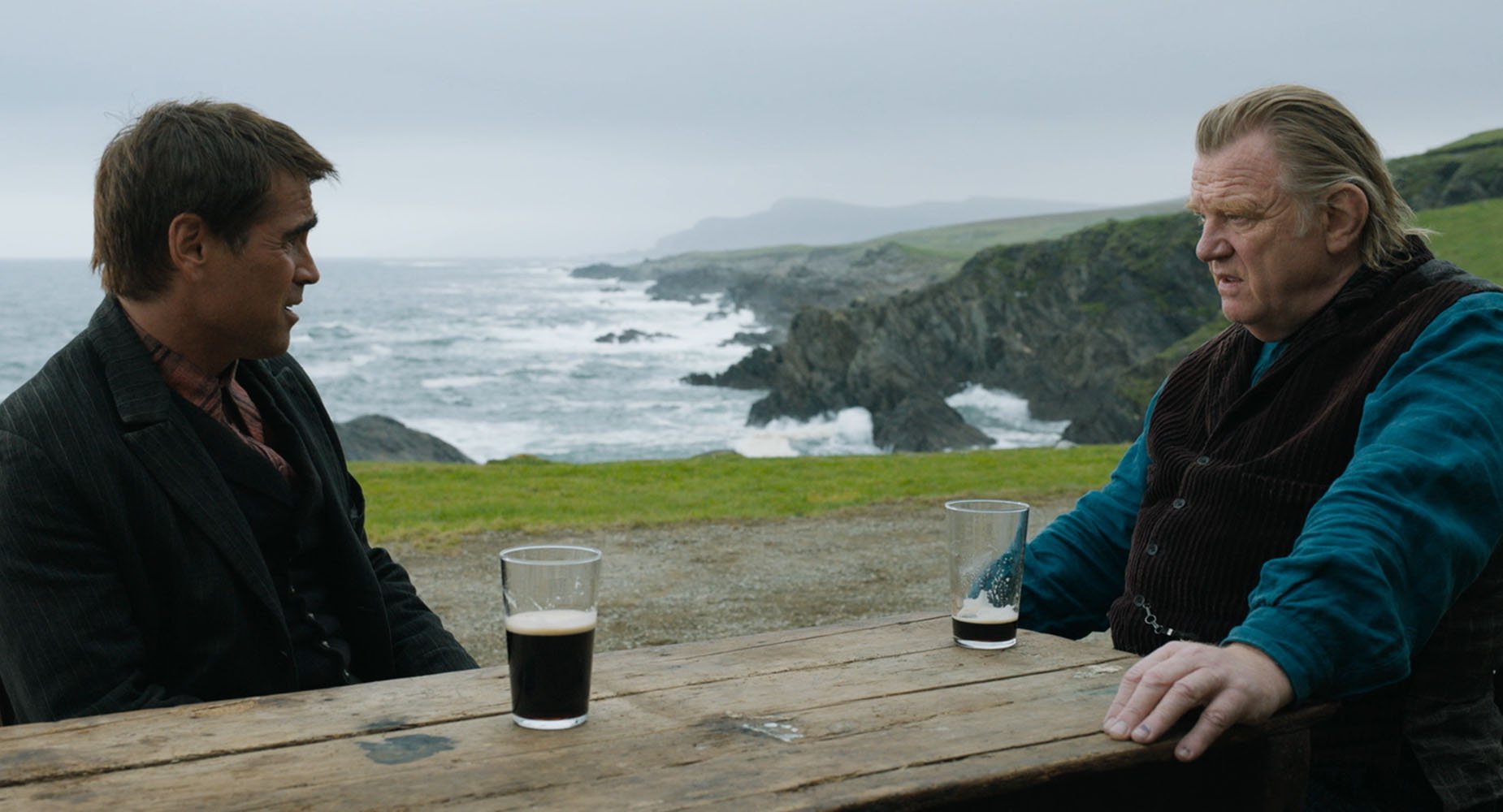The Banshees of Inisherin (2022)
“Have you been rowing?” – Siobhan.
The Banshees of Inisherin (2022)
Directed by: Martin McDonagh
Written by: Martin McDonagh
Starring: Colin Farrell, Brendan Gleeson, Kerry Condon, Barry Keoghan
“I always thought being one of life’s good guys was great,” mutters a crestfallen Pádraic (Farrell), “but now it seems like the worst thing in the world.” He’s just been dumped by his best friend Colm (Gleeson) for being “too dull”, and is seeking reassurance from friends at the pub that this isn’t the case. “Nah,” they mumble unconvincingly, “you’re more one of life’s…good guys.” It’s a funny moment in a funny pub, but as Pádraic downs his pint and wanders home to his sister Siobhan (Condon) and his small donkey Jenny, you can’t help but feel a pang of sympathy for the man. Which speaks to director Martin McDonagh’s penchant for dark humour (In Bruges, Seven Psychopaths), as he enjoys adding levity to moments of vulnerability and pain. For instance, when Colm proclaims that it’s about “one boring man leaving another man alone”, Siobhan replies incredulously, “One boring man? You’re all feckin’ boring!”
Set on the small island of Inisherin off the coast of Ireland in 1923, Banshees is probably McDonagh’s simplest screenplay, but it’s also his saddest. Bouncing between the pub, his house, and the intermittent green pastures, Inisherin seems to suit Pádraic perfectly. But the other characters all seem trapped; Siobhan dreams of life on the mainland, Colm seeks immortalisation through musical success, and even local dimwit Dominic (Keoghan) wants to escape his abusive father and shed his lowly reputation. The film balances this theme of not wanting to ‘settle’ for a boring life with Pádraic’s small-town, small-minded optimism. At one point Colm espouses the importance of achieving a timeless legacy like Mozart, to which Pádraic responds, “You know what else is timeless? Niceness.” These interactions are truly gut wrenching, as Pádraic tries desperately to win his best friend back; a mission that becomes infinitely more difficult when Colm declares that he will “cut off a finger” each time Pádraic annoys him moving forward.
Amidst the simple yet absurd storyline, McDonagh explores depression, grief, and the human need for connection. And whilst Pádraic’s naïve positivity feels hopeless in the face of Colm’s cynicism, there are still moments of brotherhood, friendship and love beneath their hatred. The two need each other, and Pádraic inadvertently becomes a father figure for the troubled Dominic along the way. It’s still littered with witty jokes and playful Irish colloquialisms, but the film rides on the back of four incredible performances (Farrell and Keoghan will likely get actor nominations) to deliver a beautifully depressing portrait of love, friendship, and self-worth.
Don’t expect a barrel of laughs or a feckin’ good time, but McDonagh’s latest is a powerful dark comedy that’ll have you thinking about your own mental state long after you leave the cinema. Or as the priest asks Colm, “How’s the despair?”
Rating: 8.5/10


